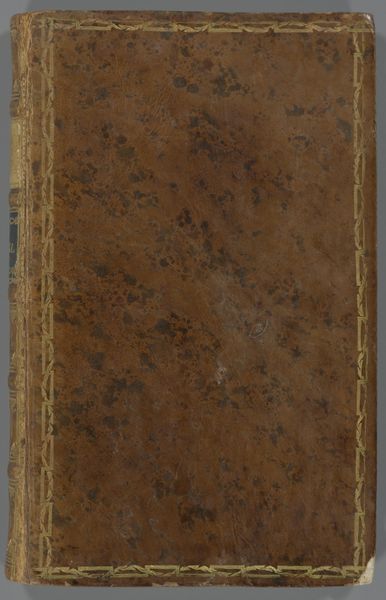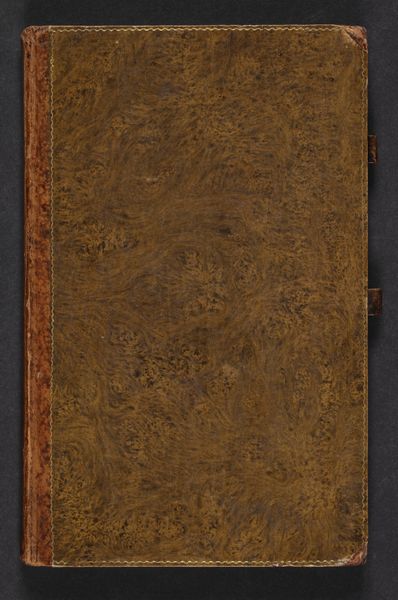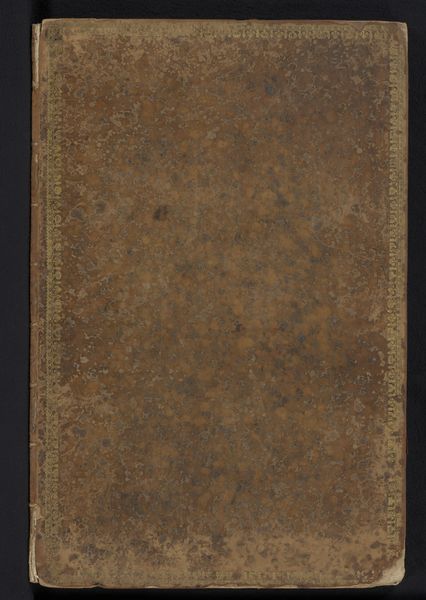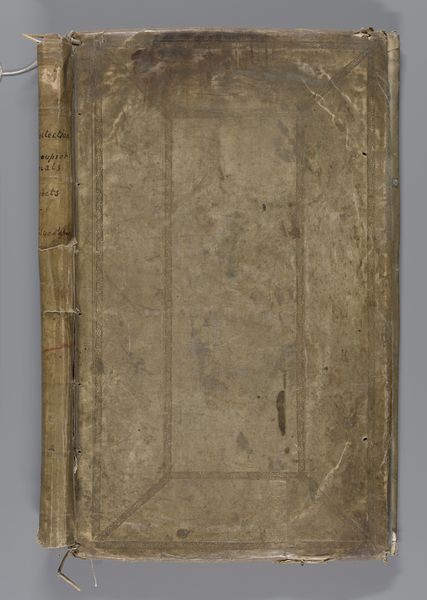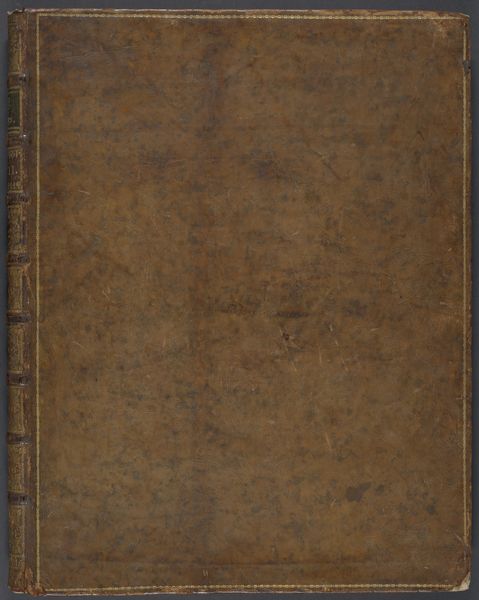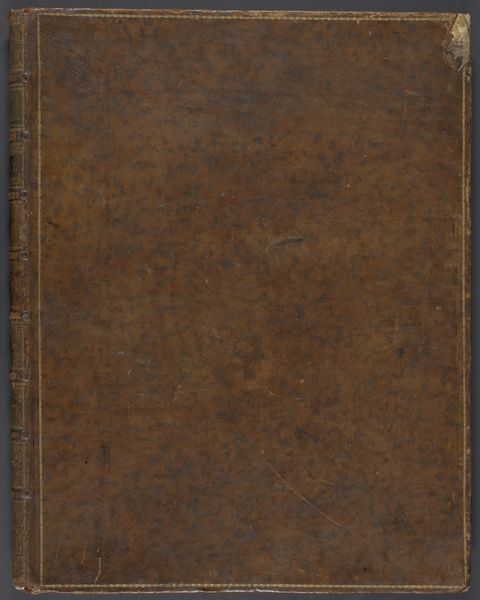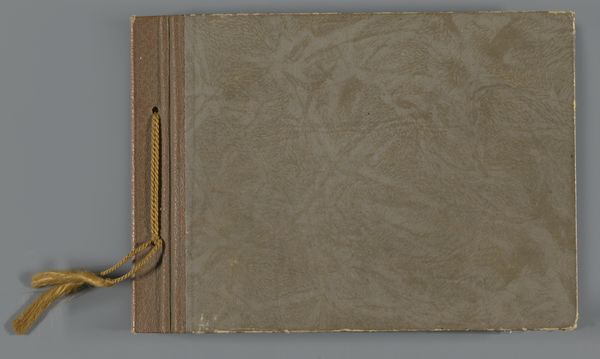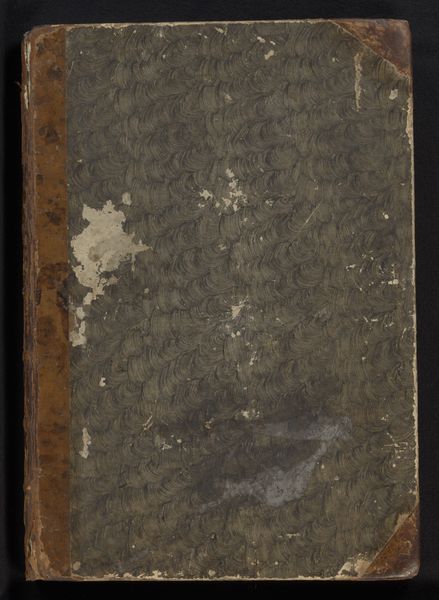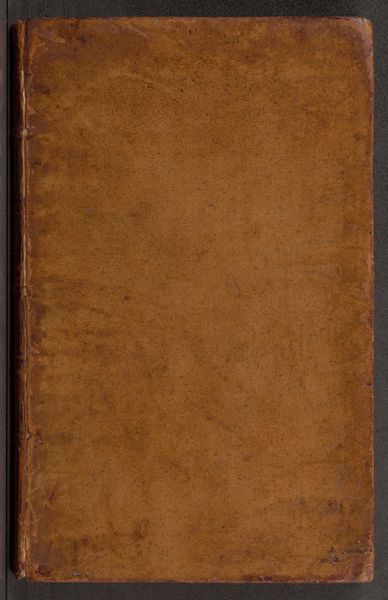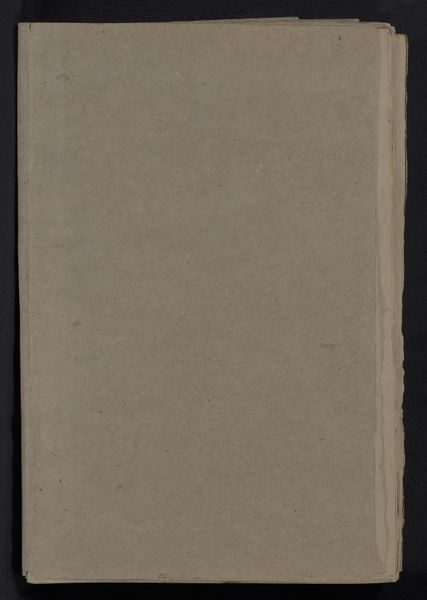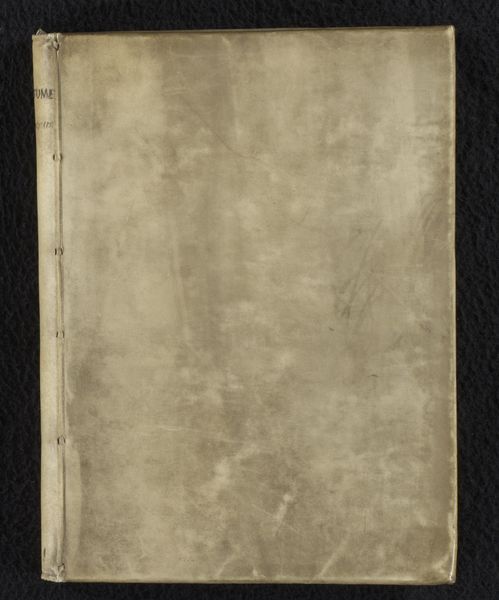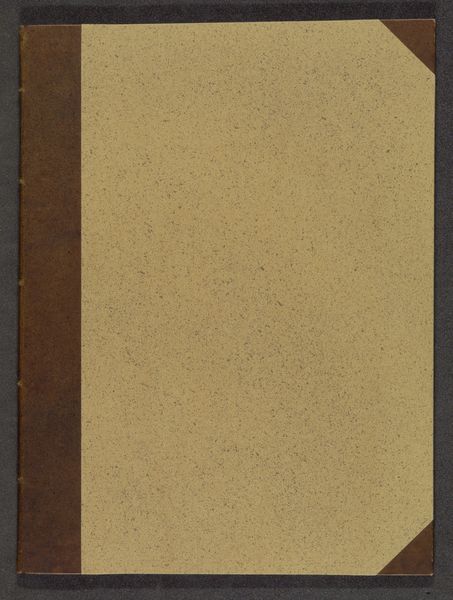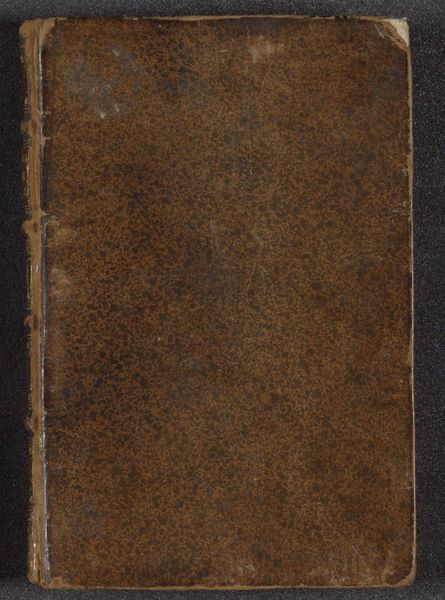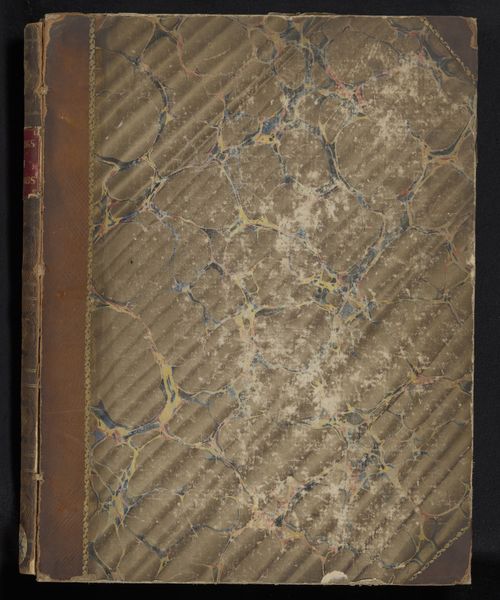
Memorien, dienende tot opheldering, van het gebeurde, geduurende den laatsten Engelschen oorlog 1792
0:00
0:00
#
dutch-golden-age
#
book
Dimensions: height 215 mm, width 135
Copyright: Rijks Museum: Open Domain
Curator: Well, this is a rather intriguing find. What we're looking at is the cover of a book titled "Memorien, dienende tot opheldering, van het gebeurde, geduurende den laatsten Engelschen oorlog," dating back to 1792. It seems to offer memoirs elucidating events of the latest Anglo-Dutch War. Editor: My first thought? It's incredibly tactile. That mottled, marbled pattern on the cover, edged in gold—it speaks of knowledge carefully guarded, like something from an alchemist's lab. Curator: The "Dutch Golden Age" style is clearly visible. The late 18th century was, in many ways, reflecting back on that earlier period of Dutch power and prosperity. You can almost see it as a form of historical branding, leveraging the cultural prestige of that era. The book itself becomes a statement. Editor: Absolutely. The book as a statement, an object carrying its own historical weight, is a compelling symbol. That faux-marbling is really catching my attention. The gold trim seems less about overt wealth and more about...refinement. Curator: And there's an element of controlled narrative here. The title suggests a very specific perspective: memoirs intended for elucidation. Who is doing the elucidating, and to what end? This book isn’t neutral; it's actively shaping an understanding of the conflict. The political function of art is obvious. Editor: The texture almost reads as the ground shifting beneath one's feet during that war, but, overall, I notice a striking tension between that organic, slightly chaotic surface and the ordered gold frame around it. It gives it a sense of a window into something tumultuous contained in gilded language. Curator: Precisely! It's an attempt to impose order and understanding on a messy, complex period of conflict, an age-old issue. We see it even today when history is viewed through the victors' view point. Editor: I wonder, what kind of memory does it seek to build? What's being amplified and what’s subtly erased with a book like this? The frame serves almost as the guard against this from its own history, this marbled experience it’s guarding. Curator: Well, for me, the object illuminates how books are not simply containers of information, but political agents contributing to the social construction of memory and nationalism. Thank you. Editor: It offers, through symbols, a very intimate, yet controlled voice to a long-ended moment. And as a powerful reminder of how our interpretations, like a binding on a book, shape and change what is truly remembered.
Comments
No comments
Be the first to comment and join the conversation on the ultimate creative platform.
